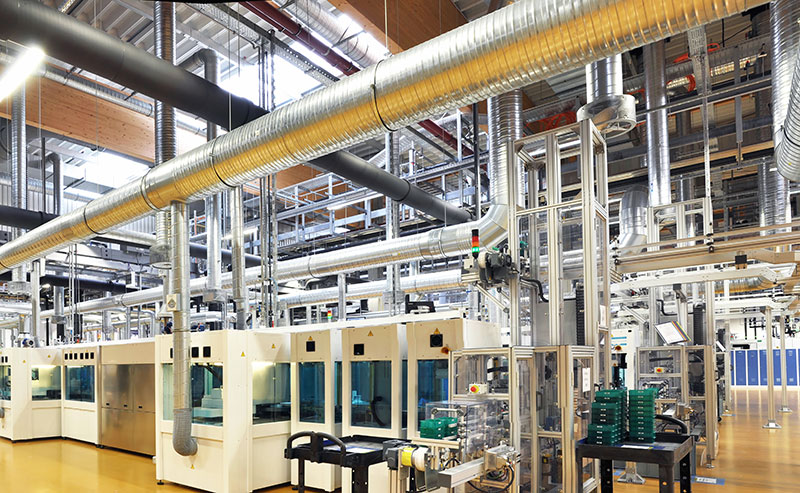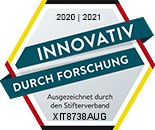
XITASO invests in research and innovation in order to be and to remain an excellent digitalisation partner. Our method is to examine future topics intensively with partners from the worlds of science and business and work out possible applications for our partners and ourselves. This is how we provide space for the best possible application-oriented research and a link to today’s and future markets.
Scientific excellence as well as national and international exchanges with the scientific community are as much part of research at XITASO as self organised work in an agile, company-wide research team. We are convinced: this is how today’s research creates tomorrow’s innovations.
What drives us
Our areas of technology
A selection of current projects

T3 – Test the Test
The research project “Test the Test” (T3) has set itself the objectives of automatically evaluating the effectiveness of model, software and hardware tests and thereby improving the quality of said tests. With the aid of Fault Injection and Mutations, hardware interfaces, code and system models are deliberately and systematically seeded with errors, in order to evaluate corresponding tests regarding their quality and effectiveness in finding each and every error. The improvement of testing quality helps satisfy the ever-increasing quality demands of embedded systems.
AIPE (ACPEK) – Automated Commissioning through Persistence of Expert Knowledge
The objective of the project “Automated Commissioning through Persistence of Expert Knowledge” (ACPEK) is on the one hand the automation of fine adjustment of machine parameters through machine learning techniques. On the other hand, expert knowledge should be persisted mechanically in order to maintain it despite the demographic changes. The combination of both aspects makes it possible to simplify and accelerate the mechanical learning process with the aid of expert knowledge. The approach is evaluated on 3d printing that can be seen as a representative of manufacturing processes that are dependent on ambient conditions.
Our current projects
A selection of our job vacancies
A selection of our publications
2024
-
Measuring Similarities in Model Structure of Metaheuristic Rule Set Learners
David Pätzel, Richard Nordsieck, Jörg Hähner
EvoAPPS 2024 -
Tracking assets in source code with Security Annotations
Daniel Haak, Raphael Mayr, Jan-Philipp Steghöfer, Alexandra Teynor, Phillip Heidegger
ICSE 2024 Poster Track -
Where Requirements and Agility Meet: No Man’s Land or a Land of Opportunity?
Fabiano Dalpiaz, Jan-Philipp Steghöfer
To appear in IEEE Software -
Combining Requirements Enigneering Techniques for the Analysis of a Legacy System
Jessica Friedline, Jan-Philipp Steghöfer
Joint Proceedings of REFSQ-2024 Workshops, Doctoral Symposium, Posters & Tools Track and Education and Training Track. Co-located with REFSQ 2024. Winterthur, Switzerland, April 8, 2024
2023
-
- Contrastive pretraining of regression tasks in reliability forecasting of automotive electronics.
Emilio Zarbali, Alwin Hoffmann, Jonas Hepp
22nd International Conference on Machine Learning and Applications (ICMLA 2023), Jacksonville, Florida, USA, Dez. 2023. -
FeatRacer: Locating Features Through Assisted Traceability
Mukelabai Mukelabai, Kevin Hermann, Thorsten Berger, Jan-Philipp Steghöfer
IEEE Transactions on Software Engineering, 2023
Read more -
Processes, Methods, and Tools in Model-based Engineering — A Qualitative Multiple-Case Study
Jörg Holtmann, Grischa Liebel, Jan-Philipp Steghöfer
Journal of Software and Systems, 2023
Download PDF -
Blended modeling in commercial and open-source model-driven software engineering tools: A systematic study.
Istvan David, Malvina Latifaj, Jakob Pietron, Weixing Zhang, Federico Ciccozzi, Ivano Malavolta, Alexander Raschke, Jan-Philipp Steghöfer, Regina Hebig
Softw. Syst. Model.22(1): 415-447 (2023)
Read more -
CASCADE: An Asset-driven Approach to Build Security Assurance Cases for Automotive Systems.
Mazen Mohamad, Rodi Jolak, Örjan Askerdal, Jan-Philipp Steghöfer, Riccardo Scandariato
ACM Trans. Cyber Phys. Syst. 7(1): 3:1-3:26 (2023)
Read more -
Trustful Model-Based Information Exchange in Collaborative Engineering.
David Schmelter, Jan-Philipp Steghöfer, Karsten Albers, Mats Ekman, Jörg Tessmer, Raphael Weber
EuroSPI (1) 2023: 156-170
Read more -
Exploiting Meta-Model Structures in the Generation of Xtext Editors.
Jörg Holtmann, Jan-Philipp Steghöfer, Weixing Zhang.
Proceedings of the 11th International Conference on Model-Based Software and Systems Engineering (MODELSWARD).
Download PDF -
Creating Python-style Domain Specific Languages: A Semi-automated Approach and Intermediate Results.
Weixing Zhang, Regina Hebig, Jan-Philipp Steghöfer, Jörg Holtmann.
Proceedings of the 11th International Conference on Model-Based Software and Systems Engineering (MODELSWARD).
Download PDF
-
Automated Extraction of Grammar Optimization Rule Configurations for Metamodel-Grammar Co-evolution.
Weixing Zhang, Regina Hebig, Daniel Strüber, Jan-Philipp Steghöfer
SLE 2023: 84-96
Download PDF
- Contrastive pretraining of regression tasks in reliability forecasting of automotive electronics.
2022
- Predicting thermal resistance of solder joints based on Scanning Acoustic Microscopy using Artificial Neural Networks.
Andreas Zippelius, Tobias Strobl, Maximilian Schmid, Joseph Hermann, Alwin Hoffmann, Gordon Elger.
9th Electronics System-Integration Technology Conference (ESTC 2022). - Identifying security-related requirements in regulatory documents based on cross-project classification.
Mazen Mohamad, Jan-Philipp Steghöfer, Alexander Åström, and Riccardo Scandariato.
Proceedings of the 18th International Conference on Predictive Models and Data Analytics in Software Engineering (PROMISE’22), pp. 82-91. - A Closer Look at Sum-based Embedding Aggregation for Knowledge Graphs Containing Procedural Knowledge.
Richard Nordsieck, Michael Heider, Anton Hummel, Jörg Hähner.
6th International Workshop On Deep Learning For Knowledge Graphs (DL4KG) at the 21th International Semantic Web Conference (ISWC 2022).
Download PDF - Towards Conceptual and Procedural Models of Operator Knowledge in Industrial Information Models.
Richard Nordsieck, Anton Hummel, Michael Heider, Alwin Hoffmann, Jörg Hähner.
First International Workshop On Semantic Industrial Information Modelling (SemIIM) at the 19th Extended Semantic Web Conference (ESWC 2022).
Download PDF - Reliability-Based Aggregation of Heterogeneous Knowledge to Assist Operators in Manufacturing.
Richard Nordsieck, Michael Heider, Alwin Hoffmann, Jörg Hähner.
2022 IEEE 16th International Conference on Semantic Computing (ICSC).
2021
- Learning Classifier Systems for Self-Explaining Socio-Technical-Systems.
Michael Heider, Richard Nordsieck, Jörg Hähner.
Proceedings of the LIFELIKE 2021 – 9th Edition in the Evolution of the Workshop Series of Autonomously Learning and Optimizing Systems (SAOS).
Download PDF - CAD-based Grasp and Motion Planning for Process Automation in Fused Deposition Modelling.
Andreas Wiedholz, Michael Heider, Richard Nordsieck, Andreas Angerer, Simon Dietrich, Jörg Hähner.
International Conference on Informatics in Control, Automation and Robotics (ICINCO).
Link - Knowledge Extraction via Decentralized Knowledge Graph Aggregation.
Richard Nordsieck, Michael Heider, Anton Winschel, Jörg Hähner.
IEEE International Conference on Semantic Computing (ICSC).
Download PDF
2020
- Evaluating the Effect of User-Given Guiding Attention on the Learning Process.
Richard Nordsieck, Michael Heider, Andreas Angerer, Jörg Hähner.
IEEE International Conference on Autonomic Computing and Self-Organizing Systems (ACSOS).
Link - Interactive Knowledge-Guided Learning.
Richard Nordsieck & Jörg Hähner.
IEEE International Conference on Autonomic Computing and Self-Organizing Systems Companion (ACSOS-C).
Link - Opportunities and Limitations of Mixed Reality Holograms in Industrial Robotics.
Michael Filipenko, Andreas Angerer, Alwin Hoffmann, Wolfgang Reif.
Factory of the Future: How to digitalize the robot-aided manufacturing process in Industry 4.0? Part of the 2019 IEEE/RSJ International Conference on Intelligent Robots and Systems (IROS).
Download PDF
2019
- Towards Automated Parameter Optimization by Persisting Expert Knowledge.
Richard Nordsieck, Michael Heider, Andreas Angerer, Jörg Hähner.
International Conference on Informatics in Control, Automation and Robotics (ICINCO).
Download PDF
2018
- partsival – Collision-based Particle and many-body Simulations on GPUs for Planetary Exploration Systems.
Roy Lichtenheldt, Simon Kerler, Andreas Angerer, Wolfgang Reif.
Joint International Conference on Multibody System Dynamics (IMSD).
Download PDF
Our partners
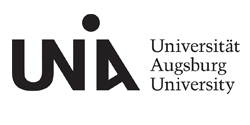


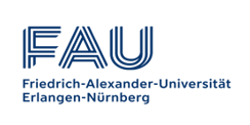



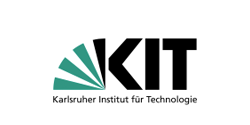
“We use research and innovation projects to explore the potentials of tomorrow’s technologies. For this purpose we network with strong partners and consciously invest in excellent young researchers.”
Dr. Andreas Angerer
Head of Research and Innovation
XITASO GmbH
Are you are interested in a project or do you have any other questions?

Dr. Andreas Angerer
Phone +49 821 885882-94
andreas.angerer@xitaso.com


